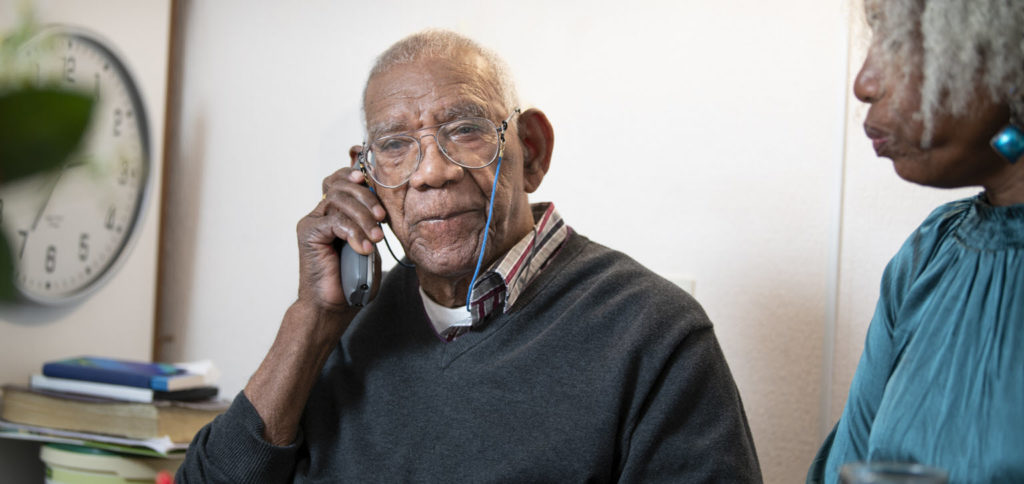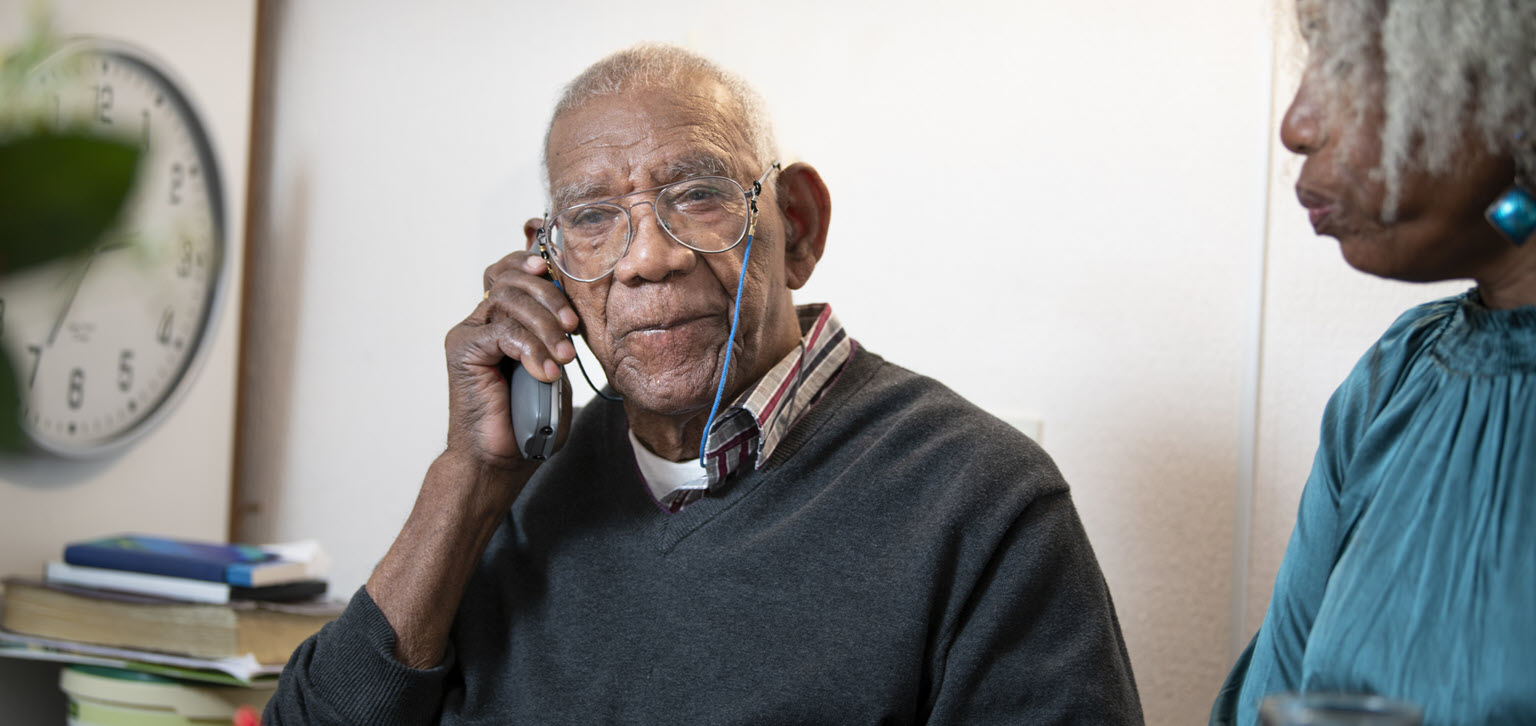by Vivian Nava-Schellinger and Jenna McDavid. This article originally appeared on the National Council on Aging (NCOA) blog.

We want to hear how COVID-19 is impacting your community. Please take a moment to answer this short anonymous survey.
Last week, more than 1,600 older adults and professionals in aging attended our tele-town hall event. (Listen to the recording here.) It was a wonderful—and easily accessible—way to share valuable information from national and community partners working with us to and lessen feelings of uncertainty about issues like food access. Some of our national partners shared why older adults are at the center of the COVID-19 crisis, and what organizations are doing to assist them:
- Anna Maria Chávez, National Council on Aging
- Sandy Markwood, National Association for Area Agencies on Aging
- Ellie Hollander, Meals on Wheels America
- Sindy Benavides, League of United Latin American Citizens
- Jenna McDavid, Diverse Elders Coalition
- Michael Soto, Equality Arizona
Sindy Benavides noted that “increasingly, we are seeing our elderly community disproportionately impacted by COVID-19. Today, it is more critical than ever that we continue our advocacy work as non-profits while ensuring that vital needs are being met in financial assistance, food insecurity, transportation, and broadband access.” Indeed, this is a vital time for aging services professionals to be flexible and embrace innovative approaches to their missions.
Other leaders on last week’s call shared similar sentiments. Jenna McDavid discussed the specific challenges Asian American communities are facing. A lack of trusted information is being addressed by organizations like the National Asian Pacific Center on Aging (NAPCA), which recently launched a multilingual telephone helpline for Asian American and Pacific Islander (AAPI) older adults and families. Geographic isolation, language barriers, and a committed against Asian Americans in the past month mean this NAPCA’s efforts will be a lifeline to AAPI older adults who may be in need of support.
Members of the tele-town hall panel agreed the COVID-19 pandemic demands public and private sector partnerships for social change. We all want to highlight the stories that show how the virus is impacting our daily lives. Using the creativity and experiences of caregivers, health professionals, and our network of community partners, we can all minimize the negative effects of social isolation and ease hardship.
The COVID-19 outbreak has shown that we are dependent on each other now more than ever. No matter where we come from, or what we look like, we know it’s time to pull together to help one another navigate through the layers of uncertainty. We’ll be planning more events like this tele-town hall to make sure diverse and uniquely vulnerable communities such as people of color, immigrants and refugees, rural and tribal communities, and lesbian, gay, bisexual, and transgender (LGBT) older adults get the support they need.
Here are some resources shared by the tele-town hall panelists that you may find useful:
- National Council on Aging:
- Eldercare Locator:
- To learn about resources in your community, contact Eldercare Locator, a public service of the U.S. Administration on Aging which is a nationwide directory assistance service designed to help older people and caregivers find local support resources. Their toll-free service links callers with information and services in their community and in other states at 1-800-677-1116 (toll-free, in English and Spanish).
- USDA National Hunger Hotline:
- Call the USDA National Hunger Hotline, which operates from 7:00 AM – 10:00 PM Eastern Time. If you need food assistance, call 1-866-3-HUNGRY or 1-877-8-HAMBRE to speak with a representative who will find food resources such as meal sites, food banks, and other social services available near your location.
- National Association of Area Agencies on Aging | Diverse Elders Coalition:
- NAPCA has just launched a new multilingual telephone helpline for Asian American and Pacific Islander older adults, and efforts by both NAPCA and SEARAC to combat xenophobia and racism that AAPI older adults are facing.
- Diverse Elders Coalition:
- The National Indian Council on Aging’s weekly telephone calls for Title VI Directors and other tribal leadership is instructing American Indian tribes on how to access resources (e.g., make emergency declarations for their tribes to receive needed funds).
- SAGE is migrating many of their services to virtual platforms and making sure to train participants on how to use these tools. With LGBT older adults at greater risk of social isolation generally, SAGE is very concerned about their constituents losing touch with the people and organizations that keep them physically and mentally healthy.
- Meals on Wheels America resources and updates:
- League of United Latin American Citizens
- The National Resource Center on Nutrition and Aging
Before you go: We want to hear how COVID-19 is impacting your community. Please take a moment to answer this short anonymous survey.
The opinions expressed in this article are those of the author and do not necessarily reflect those of the Diverse Elders Coalition.

